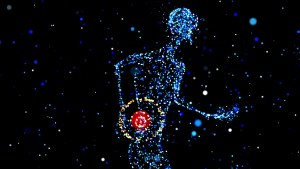Neşe Devenot // As psychedelic medicine goes mainstream, contentious debates about psychedelic access have been spilling out into the open. With a historic ballot initiative decriminalizing “magic mushrooms” in Denver and statewide initiatives to change the legal status of mushrooms underway in Oregon and California, competing movements are jockeying to decide the future place of psychedelics in society. This is the first time during the “psychedelic renaissance” that popular political movements have made national headlines, and not everyone is happy about it.
As a reflection of some of the major fault lines on this issue, a recent debate in Oregon highlights the controversy in legalizing psilocybin mushrooms for medical use instead of pushing for broader decriminalization. In a joint statement responding to a bill submitted by the Oregon Psilocybin Society (OPS), two other groups—Decriminalization Nature Portland and the Mushroom PAC—condemned the decision to shift to a medicalization model that explicitly criminalizes non-therapeutic use, arguing that “the bill is now worse for people of color, it is worse for the poor, and it is worse for civil liberty and personal freedom.”
Responding to criticisms of their campaign, OPS stressed their belief that medicalization is the best route to ameliorate suffering under the current political, economic, and medical systems: “The way we talk about this initiative has real implications for the future of mental healthcare. This is not a game. The current system is broken, and real lives are at stake. If you carelessly perpetuate disinformation about the Oregon campaign, you are, wittingly or not, doing the work of those who would deny psilocybin assisted therapy to those who are suffering and are desperately in need of help.”
Moving forward, it will be important not to shut down alternatives to medicalization based on the assumption that medicalized psilocybin from licensed therapists is necessary to ameliorate suffering. Even after bracketing the exorbitant costs of health care in the United States, medical psilocybin would not be accessible to everyone. In a powerful talk from the recent Breaking Convention psychedelics conference in the United Kingdom, Kitty Sipple drew attention to how neurodiverse individuals are labeled with contraindications and excluded from institutional medical studies.
Under current models, researchers often correlate the therapeutic effects of psychedelics with experiences of “ego loss,” a temporary dissolution of habitual personality structures that promotes positive cognitive and behavior changes. But medical studies generally exclude people with a range of diagnoses in their personal or family histories, including borderline and dissociative personality disorders, schizophrenia, and psychosis, even when those conditions developed in response to traumatic experiences. Considering that the FDA granted “breakthrough” status to MDMA based on its unparalleled promise to facilitate healing from trauma, this population is effectively barred from a treatment option that has demonstrated efficacy even when all other options failed.
Since psychedelic medicalization without decriminalization is an exclusionary endgame, we should create space for alternative narratives that critique dominant institutions rather than seek to accommodate the status quo. Part of this task involves questioning the normative assumptions in the push towards psychedelic medicalization, including questions about the criteria for contraindications.
Considering that two recent analyses of United States population surveys found no significant link between psychedelic use and the onset of psychosis, is it possible that current contraindications are a form of “virtue signaling,” designed to attenuate mainstream anxieties about the return of psychedelic medicine? How can the madness and neurodiversity movements complicate current models of psychedelic action? And finally, as Sipple inquires, how could the field evolve by welcoming neurodiverse individuals and respecting their expertise in navigating non-ordinary states of consciousness? The fundamental paradigms of Western biomedicine will have to change in order to accommodate these questions.

